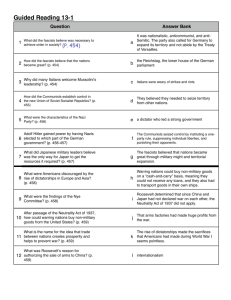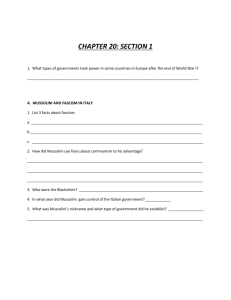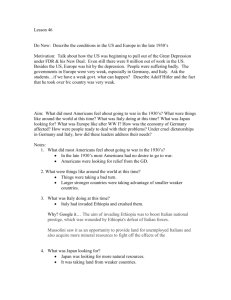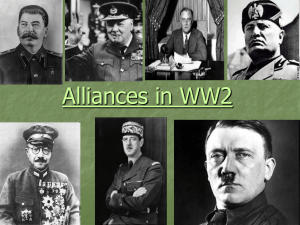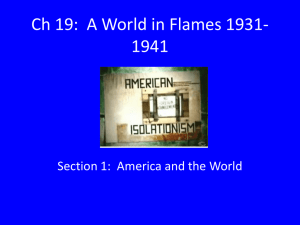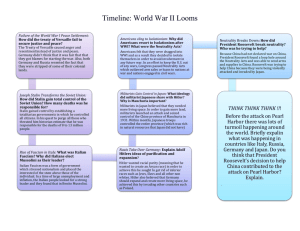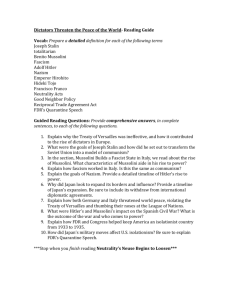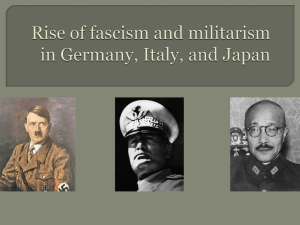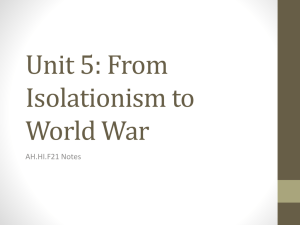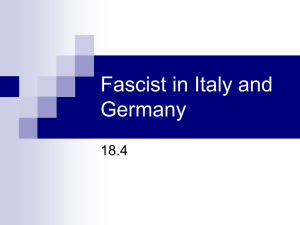19-1
advertisement
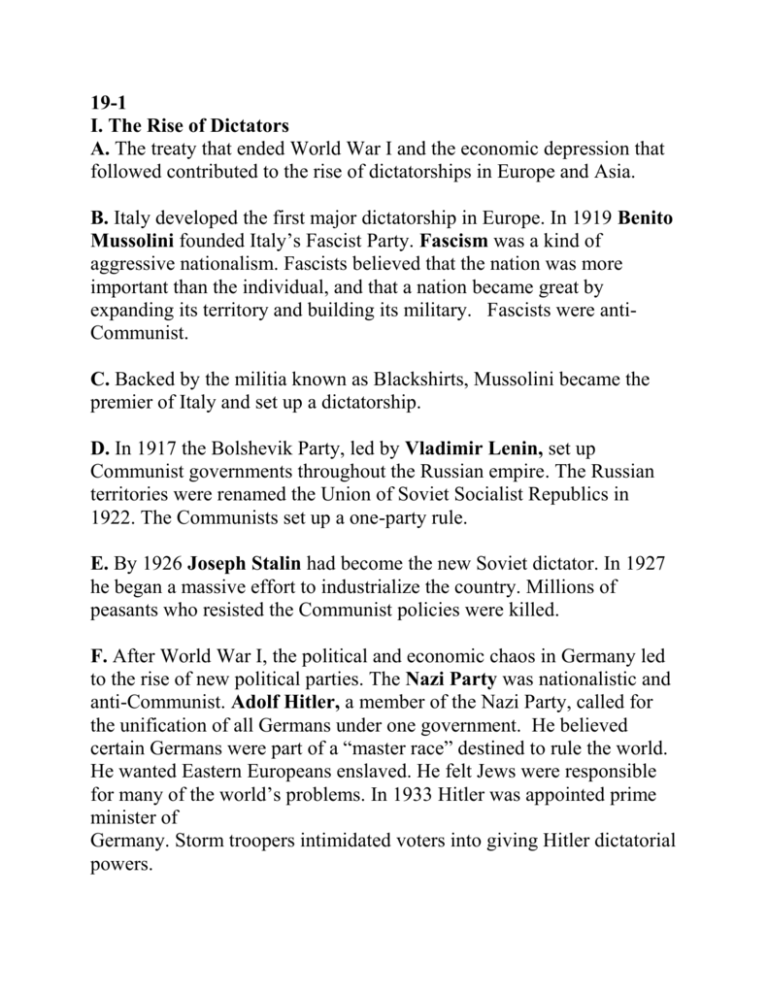
19-1 I. The Rise of Dictators A. The treaty that ended World War I and the economic depression that followed contributed to the rise of dictatorships in Europe and Asia. B. Italy developed the first major dictatorship in Europe. In 1919 Benito Mussolini founded Italy’s Fascist Party. Fascism was a kind of aggressive nationalism. Fascists believed that the nation was more important than the individual, and that a nation became great by expanding its territory and building its military. Fascists were antiCommunist. C. Backed by the militia known as Blackshirts, Mussolini became the premier of Italy and set up a dictatorship. D. In 1917 the Bolshevik Party, led by Vladimir Lenin, set up Communist governments throughout the Russian empire. The Russian territories were renamed the Union of Soviet Socialist Republics in 1922. The Communists set up a one-party rule. E. By 1926 Joseph Stalin had become the new Soviet dictator. In 1927 he began a massive effort to industrialize the country. Millions of peasants who resisted the Communist policies were killed. F. After World War I, the political and economic chaos in Germany led to the rise of new political parties. The Nazi Party was nationalistic and anti-Communist. Adolf Hitler, a member of the Nazi Party, called for the unification of all Germans under one government. He believed certain Germans were part of a “master race” destined to rule the world. He wanted Eastern Europeans enslaved. He felt Jews were responsible for many of the world’s problems. In 1933 Hitler was appointed prime minister of Germany. Storm troopers intimidated voters into giving Hitler dictatorial powers. G. Difficult economic times in Japan after World War I undermined the country’s political system. Many Japanese officers and civilians wanted to seize territory to gain needed resources. In 1931 the Japanese army, without the government’s permission, invaded the resource-rich Chinese province of Manchuria. The military took control of Japan. II. America Turns to Neutrality A. The rise of dictatorships in Europe and Asia after World War I, the refusal of European countries to repay war debts owed to the United States, and the Nye Committee findings that arms factories made huge profits caused Americans to support isolationism. Many Americans wanted to avoid international commitments. B. Congress passed the Neutrality Act of 1935 making it illegal for Americans to sell arms to any country at war. C. Congress passed the Neutrality Act of 1937, which continued the ban of selling arms to countries at war and required warring countries to buy nonmilitary supplies from the United States on a “cash and carry” basis. D. President Franklin D. Roosevelt supported internationalism. Internationalists believe that trade between nations creates prosperity and helps to prevent war. E. Japan aligned itself with Germany and Italy, and these three countries became known as the Axis Powers. F. After Japan launched a full-scale attack on China in 1937, Roosevelt authorized the sale of weapons to China, saying that the Neutrality Act of 1937 did not apply, since neither China nor Japan had actually declared war.

